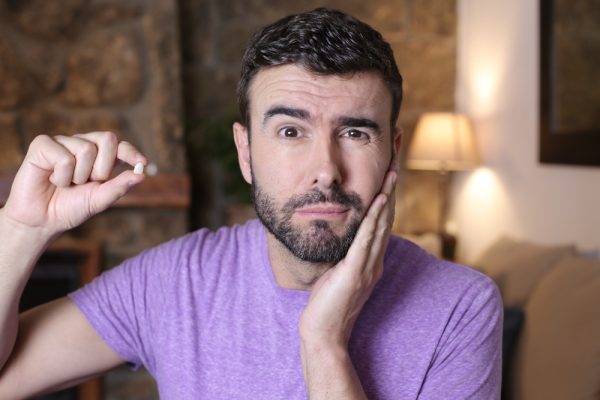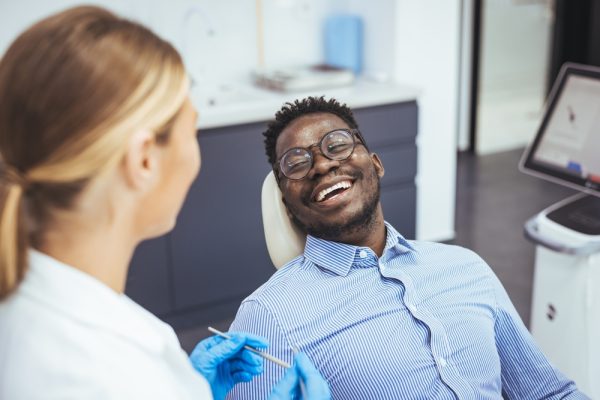Protect Your Smile with Dr. Kevin H. Gropp, Your Trusted Northridge Dentist
For many people, the thought of a tooth extraction can be intimidating. However, in some cases, removing a tooth is necessary to preserve your overall oral health and prevent further complications. Whether it’s due to severe decay, crowding, or other dental issues, tooth extractions are a routine and safe procedure that can provide relief and help restore your smile.
At Kevin H. Gropp, DDS, we are here to guide you through the process and help you understand when extraction might be the right option for you. Dr. Gropp also offers cosmetic dentistry services to address various dental issues and enhance the overall appearance of your smile. In this blog, we’ll discuss common signs that you may need a tooth extraction, the procedure itself, and how to care for your smile afterward.
To learn more about tooth extractions or schedule a consultation with Dr. Kevin H. Gropp, contact our Northridge, CA, dental office at (818) 709-8645. We also proudly serve patients coming from Chatsworth, Granada Hills, North Hills, and the surrounding areas.
 What Does a Tooth Extraction Entail?
What Does a Tooth Extraction Entail?
A tooth extraction is a dental procedure where a tooth is removed from its socket in the bone. Extractions are typically performed when a tooth is severely damaged, decayed, or causing other oral health problems. In many cases, the goal is to prevent further complications like infections, misalignment, or discomfort.
Dr. Kevin H. Gropp performs both simple and surgical extractions, depending on the complexity of the situation. If you’re dealing with an impacted tooth, a severely decayed tooth, or overcrowded teeth, an extraction could be the best solution to improve your oral health. Complex extractions, such as those involving impacted teeth, may require the expertise of oral surgeons. Additionally, dental specialists often recommend proactive removal of asymptomatic wisdom teeth in younger patients to minimize complications.
Common Signs You May Need a Tooth Extraction
1. Severe Tooth Decay or Damage
One of the most common reasons for a tooth extraction is severe decay or damage that can’t be repaired with a filling or root canal. If a cavity has reached the pulp of the tooth, causing pain, or if the tooth is broken and beyond repair, it may need to be removed.
When to see a dentist:
If you experience ongoing pain or sensitivity in a specific tooth, especially if it seems to worsen over time, it’s important to consult with Dr. Gropp to determine if extraction is necessary.
2. Overcrowded Teeth
In some cases, especially before orthodontic treatment, teeth may need to be extracted to create space for better alignment. This is commonly done for people undergoing braces or other orthodontic procedures. Extractions may also be necessary for other teeth to ensure proper dental care and alignment.
When to see a dentist:If you have overlapping or crooked teeth, or if you’re considering braces and your dentist recommends removal to improve alignment, extraction may be the next step.
3. Impacted Teeth
An impacted tooth is one that fails to emerge through the gums properly. This typically happens with wisdom teeth, which often need to be extracted before they can cause pain or infection.
When to see a dentist:
If you notice discomfort, swelling, or signs of infection around your molars or wisdom teeth, it’s essential to consult with Dr. Gropp to determine if extraction is required.
4. Persistent Pain or Infection
Chronic tooth pain, often accompanied by swelling or a bad taste in your mouth, may indicate an infection that requires tooth extraction. If a tooth is severely infected and can’t be saved, removing it is often the best option to prevent the spread of infection. After extraction, it is crucial for a blood clot to form in the socket to prevent complications such as dry socket, which can occur if the clot dislodges or fails to form properly.
When to see a dentist:If you’re dealing with constant pain, swelling, or notice pus around a specific tooth, seek dental attention right away to prevent further damage.
5. Gum Disease or Periodontal Disease
Gum disease, when left untreated, can cause the loss of tooth support structures, such as the bone and gum tissue, which may necessitate tooth extraction. In cases of advanced periodontal disease, a tooth may become loose and need to be removed.
When to see a dentist:
If you’ve noticed bleeding gums, receding gums, or loose teeth, it’s important to schedule an appointment with Dr. Gropp to assess the health of your teeth and gums.
6. Tooth Abscess
A tooth abscess is a serious infection at the root of a tooth that can lead to severe pain, swelling, and even fever. If the infection is not treatable with a root canal, the tooth may need to be extracted to prevent the spread of infection to other areas of the mouth or body.
When to see a dentist:
If you experience pain, swelling, or sensitivity in your gums that doesn’t improve, it’s important to get checked right away. An abscess can lead to serious complications if left untreated.
7. Wisdom Teeth Issues
Wisdom teeth issues can arise when there is not enough space in the jaw for these teeth to come in properly. This often leads to impacted wisdom teeth, which can cause a range of problems, including severe pain and discomfort, infection and swelling, and damage to surrounding teeth and gums. Additionally, impacted wisdom teeth can lead to the formation of cysts or tumors around the affected tooth, as well as gum disease and tooth decay.
If you are experiencing any of these symptoms, it is crucial to consult with a dental specialist. Dr. Gropp can assess your situation and determine the best course of action. In many cases, wisdom tooth removal may be necessary to prevent further complications and maintain your oral health.
The Tooth Extraction Process in Northridge, CA
Tooth extractions are typically straightforward procedures that can be performed in our office under local anesthesia. Dr. Gropp will numb the area surrounding the affected tooth to ensure you’re comfortable throughout the procedure. If necessary, sedation options are available for patients who may experience dental anxiety or who require multiple teeth to be removed at once.
The tooth extraction cost can vary significantly depending on whether the extraction is simple or surgical. Factors such as the complexity of the extraction, whether a tooth is impacted, and the geographical location can greatly influence the overall cost.
Once the tooth is extracted, Dr. Gropp will provide instructions for post-operative care to ensure a smooth recovery. In some cases, stitches may be required to help with healing.
Simple vs. Surgical Extraction
Tooth extraction can be either simple or surgical, depending on the complexity of the procedure. A simple extraction is typically used for visible teeth that are easily accessible. This procedure involves numbing the area with local anesthesia, using an elevator to loosen the tooth, and then removing it with forceps.
On the other hand, a surgical extraction is required for teeth that are impacted, broken, or below the gum line. This more complex procedure involves making a small incision in the gum, removing bone or tissue around the tooth, and sometimes cutting the tooth into smaller pieces to facilitate removal. Surgical extractions are usually performed by an oral surgeon and may require general anesthesia or sedation to ensure patient comfort.
How to Care for Your Oral Health After a Tooth Extraction
Proper aftercare is essential for ensuring that your mouth heals correctly and preventing complications like infection or dry socket. Dentists may recommend tooth extraction to prevent complications and ensure proper healing, especially in cases of severe decay or infection. Here are some general guidelines to follow after a tooth extraction:
- Rest: Take it easy for the first 24 hours after the procedure and avoid vigorous activities.
- Ice Packs: Apply ice to the outside of your cheek to reduce swelling.
- Pain Management: Take over-the-counter pain relievers as prescribed by Dr. Gropp to manage discomfort.
- Avoid Smoking and Drinking Through Straws: Smoking and using straws can interfere with the healing process and increase the risk of complications.
- Follow-up Appointment: Be sure to attend any follow-up visits to ensure your healing is progressing as expected.
Options for Replacing a Missing Tooth
If you have had a tooth extracted, there are several options for replacing it to restore your smile and maintain oral function. These options include:
- Dental Implants: A dental implant is a titanium post that is surgically inserted into the jawbone to support a crown or bridge. Implants are durable, long-lasting, and look and feel like natural teeth.
- Bridges: A dental bridge is a fixed appliance that is attached to surrounding teeth to replace a missing tooth. It provides a stable and aesthetically pleasing solution.
- Dentures: Dentures are removable appliances that can be used to replace one or more missing teeth. They are a versatile and cost-effective option.
Why Tooth Extractions Are Sometimes Necessary at Kevin H. Gropp, DDS
While the idea of losing a tooth can be unsettling, tooth extractions are often necessary to maintain overall oral health and prevent more serious problems. Whether it’s due to decay, overcrowding, or injury, an extraction can offer relief and pave the way for a healthier smile.
At Kevin H. Gropp, DDS, we understand the importance of preserving your natural teeth. Dr. Gropp will work with you to explore all options for saving your tooth before recommending extraction, but in some cases, it may be the most effective solution to maintain your oral health.
 Schedule Your Tooth Extraction Consultation With Dr. Gropp Today!
Schedule Your Tooth Extraction Consultation With Dr. Gropp Today!
If you’re experiencing any of the signs of needing a tooth extraction, don’t wait to seek professional help. Dr. Kevin Gropp offers compassionate care and is here to guide you through the process, ensuring you’re comfortable every step of the way. If you are experiencing issues with your wisdom teeth, it is important to consult with Dr. Gropp about wisdom tooth extraction to prevent further complications.
Contact our Northridge dental office at (818) 709-8645 to schedule your consultation. We’ll discuss your treatment options, including extraction, and help you make an informed decision about your oral health. We also proudly serve patients coming from Chatsworth, Granada Hills, Lake Balboa, and the surrounding areas.

